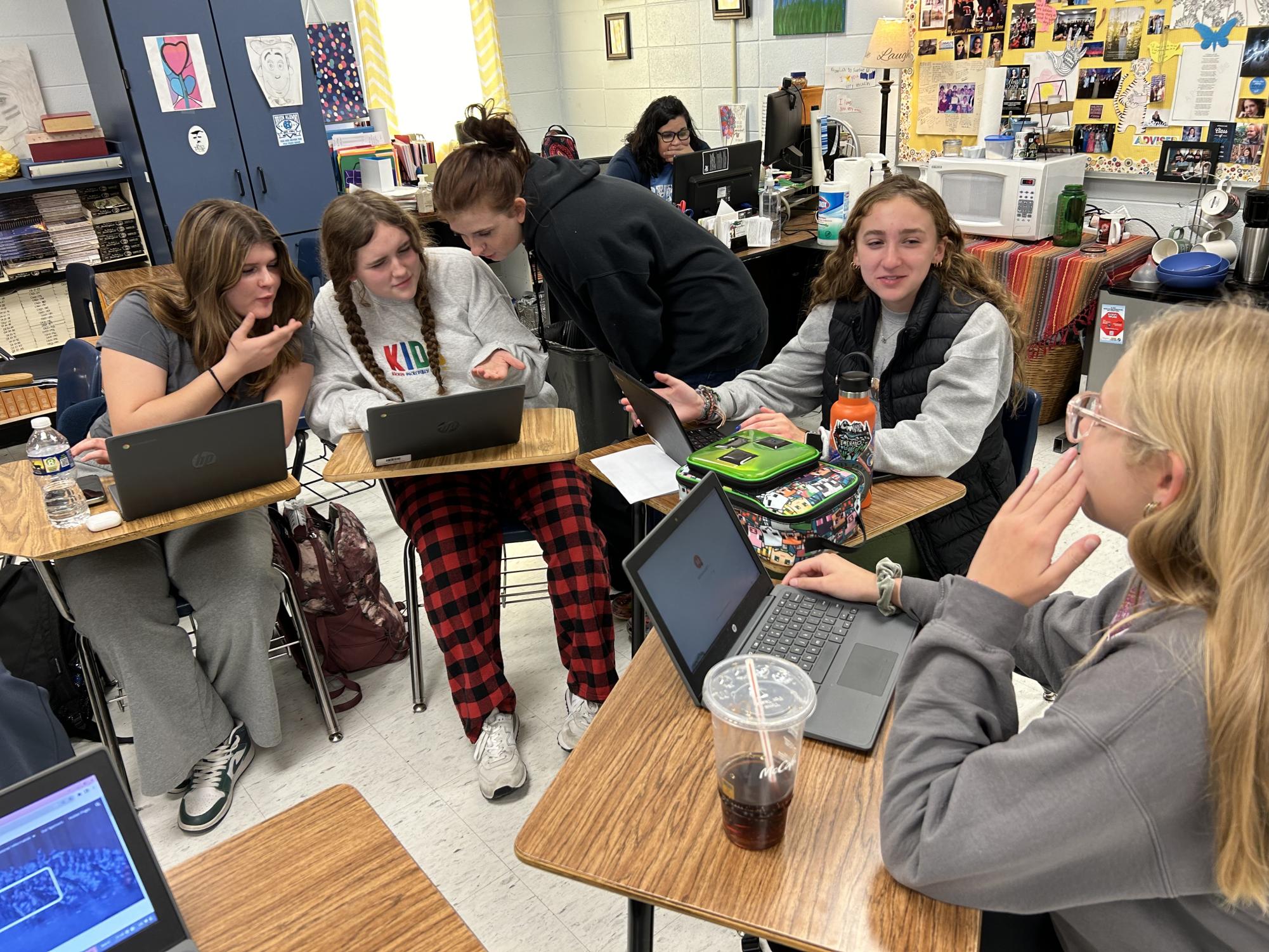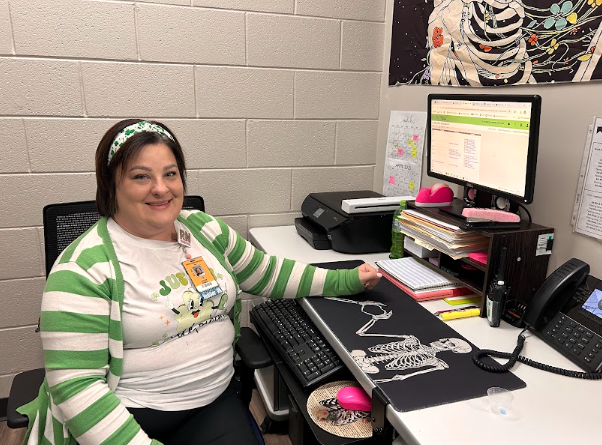Working with others is a common task that individuals deal with daily; no one is a stranger to group work. Whether for a school project or a workplace assignment, everyone has experienced the qualities of working in a team.
School has played a large role in developing group work and its effects on adolescents. It’s usual for elementary school students to work together in order to build communication skills and practice bonding. However, some may say it’s easier for children to interact with their peers at such a young age since they’re more naive. Once said children reach high school and mature into teenagers, it becomes more difficult. They begin to develop their own thoughts and personalities, along with new motives. Some only want to interact with their friends, others want to be left alone, and a few don’t want to do anything at all.
In the past two years, Central has shifted toward a curriculum that is largely composed of group work using Project Based Learning (PBL). With this has come a variety of opinions from students and teachers alike. Science teacher Kimberly Gibson has been implementing PBL in her classroom in recent years and is very optimistic about what it has in store for students.
“Since Covid, students have been isolated, working online more, and not really given the opportunity to work together. This has caused a lack of communication and collaboration skills, and I think that PBL does a great job of addressing that and teaching those skills. It’s a shift from traditional lecture/independent work to more collaborative discussions about content and projects where students can be creative with their learning. I think it’s very beneficial for students’ futures as well, as most employers are now looking for these real-world skills, and are not willing to hire people who can’t communicate, collaborate, and have no agency/responsibility,” Gibson explained.
She concluded that she expects to see an expansion of PBL in learning from now on since it allows students to really practice skills rather than just read/hear about them. Junior Anna Pearsall also thinks that there’s great potential for PBL in class based on her personal experience.
“For me, I learn and retain information better when I work in a group. I have seen groups improve their learning and grow as people when working in a group. When there are more people in the group you have more opinions, so you can see all sides of the project that you may have not thought about. Having open discussions about the topic can also be beneficial to students if they don’t really understand it,” Pearsall said.
She believes that the main downside of PBL is that some students don’t participate in the work or communicate with their team, but overall it is beneficial for students and will help them feel more comfortable working with people in the future.
Despite these positive outlooks, not everyone agrees with these statements. Due to this, a survey for both students and staff asked their thoughts on group work and 11 participants responded: five teachers and six students. Though this is a small percentage of our student and teacher body, every voice counts.
Focusing on the student body, two of those who voted said that they do enjoy group work, one said they do not, and the other three said they sometimes do. The students explained that group work is enjoyable when they get to pick their groups or are paired with people who they know will be cooperative and complete their part, but it can go downhill if they’re paired with people who don’t care about the assignment and refuse to participate. This is very understandable and should be taken into consideration by both students and teachers.
The students also responded to whether they thought group work was beneficial, with the majority choosing “sometimes.” Sophomore Ashley Borders offered a logical description of her thought process and personal history.
“Group work can sometimes help kids to learn how to cooperate and communicate with others. However, in my experience, it has not always been a good experience and kids won’t even try. They will get out of it what they put into it,” Borders explained.
Overall, the students had fair things to say about group work. They concluded that group work should only be mandatory if for special circumstances, which seems reasonable considering how some students put forth zero effort.
From the teachers’ perspectives, two said that they enjoy assigning group work and three said that only sometimes they do. They appear to relate to the students and recognize the struggles they face working in groups. Librarian Sarah Bauer really reconciled with the students and provided a thoughtful explanation of the subject.
“When I was in the classroom I didn’t mind assigning group work, but I found that often there was also someone who did not pull their weight in the group. I had to be careful about how groups were planned to make sure no one was taking advantage of the situation or of the work ethic of their peers,” Bauer stated.
This idea links back to the students’ responses perfectly and is a good reminder of how much attention teachers pay to their classes. Things usually don’t go unnoticed and teachers always aim to improve any issues.
All of the teachers agreed that group work is beneficial to students, even if there are flaws occasionally. Their views on whether or not it should be mandatory were split evenly between sometimes and no, with only one saying yes.
Overall, group work is obviously an important part of development and a major aspect of adulthood. It’s crucial for students to have communication and team-building skills, but there are times when it really isn’t necessary. With certain assignments, students should have the option to work independently, instead of being forced to work with others. Nevertheless, working with peers does benefit students and is definitely acknowledged in the workplace.








